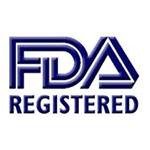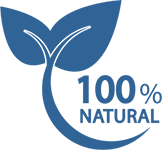Turmeric
What is Turmeric?
Turmeric is a natural antioxidant that helps fight cell-damaging free radicals called curcominoids. **
What are the benefits of Tumeric?
- Turmeric is well known for its anti-inflammatory and immune-supporting properties.
- Turmeric supports the body's natural defenses.
- Turmeric contains beneficial flavonoids (plant-based antioxidants) which help fight cell-damaging free radicals. **
Ingredients: Fresh Turmeric Root (Curcuma longa), Grain alcohol, Deionized Water
Harvesting Status: Certified Organic
Amount Per Serving: 450mg per 1 Veggie Capsule
Are there safety concerns?
Turmeric is safe when used appropriately by adults.
Turmeric usually does not cause significant side effects; however, some people can experience stomach upset, nausea, dizziness, or diarrhea.
Special precautions & warnings:
Don’t take turmeric if you are pregnant or breastfeeding.
Gallbladder problems: Turmeric can make gallbladder problems worse. Don’t use turmeric if you have gallstones or a bile duct obstruction.
Gastroesophageal reflux disease (GERD): Turmeric can cause stomach upset in some people. It might make stomach problems such as GERD worse. Don’t take turmeric if it worsens symptoms of GERD.
Surgery: Turmeric might slow blood clotting. It might cause extra bleeding during and after surgery. Stop using turmeric at least 2 weeks before a scheduled surgery. Are there interactions with medications?Return to top Moderate Be cautious with this combination.
Medications that slow blood clotting (Anticoagulant / Antiplatelet drugs) Turmeric might slow blood clotting. Taking turmeric along with medications that also slow clotting might increase the chances of bruising and bleeding.
Some medications that slow blood clotting include aspirin, clopidogrel (Plavix), diclofenac (Voltaren, Cataflam, others), ibuprofen (Advil, Motrin, others), naproxen (Anaprox, Naprosyn, others), dalteparin (Fragmin), enoxaparin (Lovenox), heparin, warfarin (Coumadin), and others.
Are there interactions with herbs and supplements?Return to top Herbs and supplements that might slow blood clotting Turmeric might slow blood clotting. Taking turmeric along with herbs that also slow clotting might increase the chances of bruising and bleeding. These herbs include angelica, clove, danshen, garlic, ginger, ginkgo, Panax ginseng, red clover, willow, and others.
There are no known interactions with foods.





